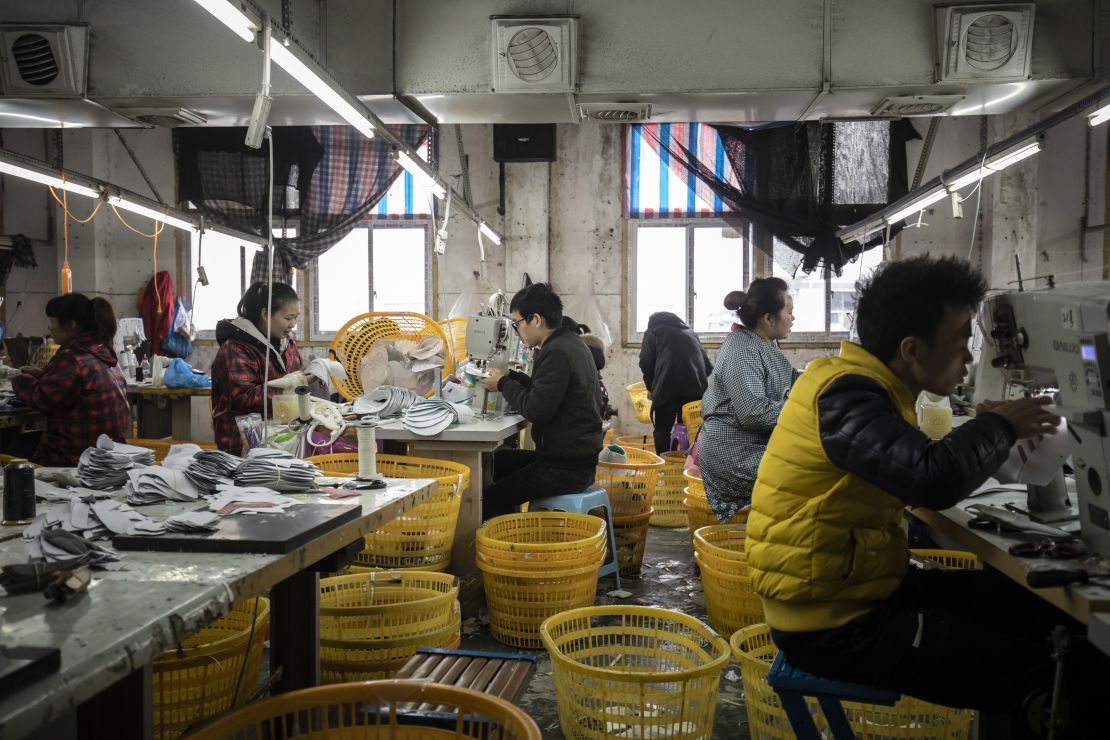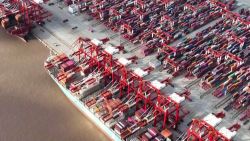China’s economy grew at its slowest pace in almost three decades last year.
The world’s second biggest economy expanded 6.6% in 2018, according to official data published Monday. That’s the weakest annual performance since 1990.
Chinese growth has lost momentum following government efforts to try to rein in high levels of debt. It has also started feeling the effects of the trade war with the United States, which has resulted in new tariffs on more than $250 billion of Chinese exports.
The deteriorating situation in a market that businesses around the world rely upon for growth is having a widespread impact. It has spooked investors and prompted warnings from top companies like Apple (AAPL).
Economic growth in China slowed to 6.4% in the fourth quarter of last year, according to Monday’s data, in line with economist’s predictions.
Stocks listed in Shanghai and Hong Kong rose modestly after the figures were published. Ken Cheung, a strategist at investment bank Mizuho, said investors were relieved that nothing in the data suggested China’s slowdown was worse than previously thought.
Economic growth is expected to drop closer to 6% this year. But many analysts are skeptical about the accuracy of the government figures and say growth may be significantly lower in reality.

How much can Beijing do?
Plenty of other indicators have been flashing red. In December, Chinese exports suffered a surprise decline, while annual car sales fell in 2018 for the first time in around 20 years.
Beijing announced 1.3 trillion yuan ($193 billion) worth of new measures this month that are designed to stimulate the economy, including tax cuts for small businesses and reduced tariffs. It’s the latest in a flurry of government efforts to prop up growth, such as boosting infrastructure spending and loosening monetary policy.
But experts question whether Beijing’s measures will be enough to return the economy to strong growth anytime soon. And there are risks things could get worse in the meantime.
Beijing and Washington are trying to negotiate an end to their trade dispute, but it remains unclear if they’ll reach a deal. If they don’t, more punishing tariffs loom. There’s also a danger the Chinese government’s stimulus measures will fail to have the desired effect, according to Louis Kuijs, head of Asia economics at research firm Oxford Economics.
“We think growth will remain under pressure in the coming months,” he said in a note to clients Monday.
Chinese officials are emphasizing that the economy remains broadly stable.
Ning Jizhe, head of China’s statistics bureau, said at a news conference Monday that the trade war had weighed on the economy but that “the impact is still under our control.”
Global conditions this year will “be more complicated and severe,” he added, but China’s economy “will move forward with stability.”
Nanlin Fang contributed to this report.


























